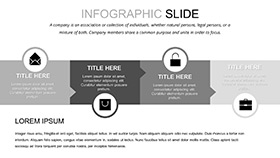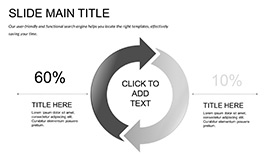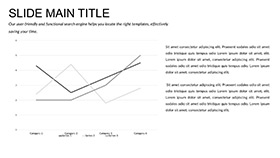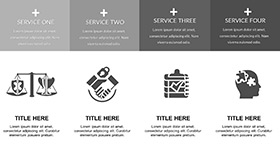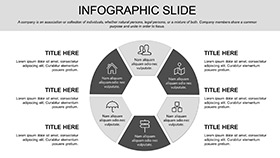Ever felt the frustration of a groundbreaking study lost in a sea of dense text and cluttered slides? The Research Methodology Keynote Template changes that, offering a structured canvas where your investigative journey comes alive. Tailored for academics, scientists, and professionals presenting at conferences or workshops, this template features 28 diagrams that map every phase - from hypothesis to validation - with elegant precision. Backed by three master slides and backgrounds, and seven adaptable color schemes, it's designed to clarify without complicating.
This isn't just a deck; it's a storytelling ally for those moments when you need to convey rigor and revelation in equal measure. Whether outlining qualitative interviews for a sociology thesis or quantitative models in a tech lab, the intuitive layouts ensure your audience follows the thread effortlessly. Customize with Keynote's tools to embed real data, adjust scales, or infuse your institutional branding, turning potential confusion into confident comprehension.
Essential Features for Methodical Minds
Built on Keynote's robust foundation, this template emphasizes modularity and aesthetics. The three masters provide foundational setups: one for sequential processes, another for comparative analyses, and the third for summary overviews. Backgrounds range from minimalist neutrals to subtle textured patterns, keeping focus on your content.
- 28 Specialized Diagrams: Dive into flowcharts for study designs, Venn diagrams for overlapping methodologies, or pyramid structures for hierarchical data collection - each scalable and annotation-ready.
- Seven Thematic Color Schemes: Select from scholarly grays for formal papers or vibrant accents for engaging seminars, with colors that enhance readability and evoke trust.
- User-Centric Editing: Layer in hyperlinks for drill-down details, or synchronize with external data sources for live updates during presentations.
These tools empower you to iterate quickly, testing variations to see what best illuminates your points. For example, in a methodology breakdown slide, use an animated stepper to reveal phases incrementally, mirroring the iterative nature of research itself.
Practical Use Cases in Research Settings
From university lectures to industry symposia, this template adapts to diverse demands. Consider a PhD candidate defending their dissertation: Employ the timeline diagram to chart literature review to empirical testing, with milestones marked by custom icons for clarity.
Step-by-step for a workshop on survey design:
- Define Scope: Open with a mind-map diagram, branching from central research questions to sub-themes.
- Detail Instruments: Illustrate with bar graphs comparing tool reliabilities, editable axes for your metrics.
- Address Ethics: Use a checklist infographic, ticking boxes via Keynote's interactivity.
- Summarize Rigor: Conclude with a balance scale visual, weighing strengths against limitations.
Such applications echo how researchers at institutions like Oxford structure their talks - methodical yet mesmerizing. It's equally potent for corporate R&D teams briefing on innovation pipelines.
Pro Tips for Seamless Customization
Launch in Keynote by selecting a master and duplicating slides for safety. Fine-tune spacing with smart guides, and incorporate shapes from the library to denote variables. For virtual delivery, optimize transitions to mimic page turns, enhancing the narrative feel.
A handy trick: Embed QR codes linking to appendices, bridging slides to supplementary materials without overwhelming the deck.
Beyond Basics: Elevating Research Narratives
Unlike ad-hoc Keynote builds, this template's pre-vetted visuals prevent common pitfalls like overcrowded canvases. It fosters a cohesive look that signals expertise, freeing you to emphasize discoveries over design fixes.
Educators find it invaluable for flipping classrooms, where students remix slides to propose their own methods. Grant writers use it to visualize proposed workflows, making abstract plans tangible to reviewers.
Integrating into Your Research Workflow
Post-download of .key and .kth files, organize via Keynote's navigator for easy reordering. Collaborate by sharing links, with changes syncing in real-time. For archiving, export to video for evergreen resources.
Compatible across Keynote updates, it grows with your projects, from initial proposals to final publications.
Empower your next presentation with clarity and conviction. Grab the Research Methodology Keynote Template for $22 and let your methods shine.
Frequently Asked Questions
How customizable are the diagrams?
All 28 diagrams are vector-editable, allowing resizing, recoloring, and data swaps directly in Keynote.
Is it suitable for group collaborations?
Yes, Keynote's sharing features make it ideal for team edits on methodology sections.
What themes does it cover?
It spans qualitative, quantitative, and mixed methods, with diagrams for each stage.
Can I add my own backgrounds?
Absolutely, import images or patterns to replace the three included ones seamlessly.
Does it include animation presets?
Builds are ready to apply, but you can customize for phased reveals tailored to your flow.
How do I handle large datasets?
Use linked charts that pull from external files, updating automatically as data evolves.




















